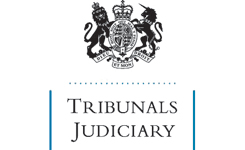|
Notes:
|
Reported as [2011] AACR 21
Criminal injuries compensation – awards for mental injury – differences between 1996 scheme and 2001 scheme – meaning of “change in medical condition” in test for re-opening a case
The applicant made a claim under the 1996 Criminal Injuries Compensation Scheme for an incident in October 2000 in which his left hand was slashed. Compensation was initially refused, but the case was re-opened following a medical report in December 2002, which described the injuries resulting from the incident as laceration to left hand (not resolved) and anxiety (not resolved). The report described the symptoms of anxiety and depression as being static and not changed since the incident and gave the psychological prognosis that on the balance of probabilities the applicant would be fully recovered in nine months from the date of the report. An award was made in November 2005 for minor scarring to upper limbs, and an application for review of that decision was refused in August 2007. The explanation for refusal stated that all awards under the Scheme included compensation for the degree of shock normally suffered by a person injured in an assault, and that a specific award for the psychological effects of an incident would be made only if that would be equal to or higher than the award for the physical injuries or if there were no qualifying physical injuries. That was not a provision of the 1996 Scheme, but was stated in paragraph 4.9 of the Guide to the Scheme and was a provision of the 2001 Scheme. The explanation also stated that the higher levels of compensation for mental injury in the tariff were payable only if a psychiatrist (or other suitably qualified person) diagnosed a disabling mental disorder. Paragraph 56 of both the 1996 and 2001 Schemes provided that a claims officer might re-open a case where there had been such a material change in the victim’s medical condition that injustice would occur if the original assessment of compensation were allowed to stand, or where he had since died in consequence of the injury. In 2008 the applicant requested a re-opening of his case on the basis of new evidence from a chartered psychologist, giving a diagnosis of post-traumatic stress disorder and a prognosis that he would continue to suffer for the foreseeable future. In September 2008 an appeal panel decided, without an oral hearing, that there had not been the necessary material change in the applicant’s medical condition for the case to be re-opened because a report from a chartered psychologist was not sufficient for the purposes of the Scheme to establish disabling mental illness confirmed by psychiatric diagnosis and there was nothing in the report to indicate that the psychologist’s qualifications fell within those which were acceptable to support a claim for disabling mental illness. The applicant applied for judicial review of that decision.
Held, allowing the application and quashing the decision, that:
1. the requirements of a fair hearing demanded that the applicant be given the opportunity to produce evidence that the psychologist was a clinical psychologist, but if the only possible outcome would have been the conclusion that she was not a clinical psychologist, then if there was no other flaw in the panel’s decision, that would have been a powerful argument for exercising the discretion not to make a quashing order despite the existence of that error of law (paragraphs 16);
2. however, the claim was under the 1996 Scheme and it would not be proper to read back into the 1996 Scheme the specific restriction to psychiatrists or clinical psychologists introduced in the 2001 Scheme. That meant that the question of whether the psychologist was a suitably qualified person would have to be answered by reference to her substantive qualifications and experience, and in so far as the panel relied on her not having been shown to be a clinical psychologist, rather than not having been shown to be a suitably qualified person to make a psychiatric diagnosis, it went wrong in law (paragraphs 17 and 18);
3. following R v Criminal Injuries Compensation Board, ex parte Williams, 27 June 2000, what is required for paragraph 56 of the 1996 Scheme and succeeding schemes is a change in the applicant’s medical condition that has happened after the date of whatever decision authorises the award of compensation accepted by the applicant (“the original decision”), which in the present case was 7 August 2007, and a pure comparison of the applicant’s actual medical condition as it is now known to have been at that with the current condition (paragraph 27);
4. a person’s medical condition at any particular time includes the prognosis for the future that could reasonably be made, and if the prognosis accepted at the time of the original turns out to be wrong, because of a mis-diagnosis of the underlying condition at that time, that in itself cannot amount to a change of medical condition. But if an applicant continues to be affected for longer than could reasonably have been predicted at the time of the original decision if what is now known to be the correct diagnosis had been made, that may amount to a change in the applicant’s medical condition (paragraphs 28);
5. in the absence of any equivalent in the 1996 Scheme to Note 5 to the Tariff in the 2001 Scheme, it was strongly arguable that paragraph 4.9 of the Guide could not be implemented as it was inconsistent with the Scheme itself and that was a factor to be considered if the cases were re-opened (paragraphs 28 to 30).
The judge remitted the appeal to the First-tier Tribunal for reconsideration of the question whether the case should be re-opened.
|
